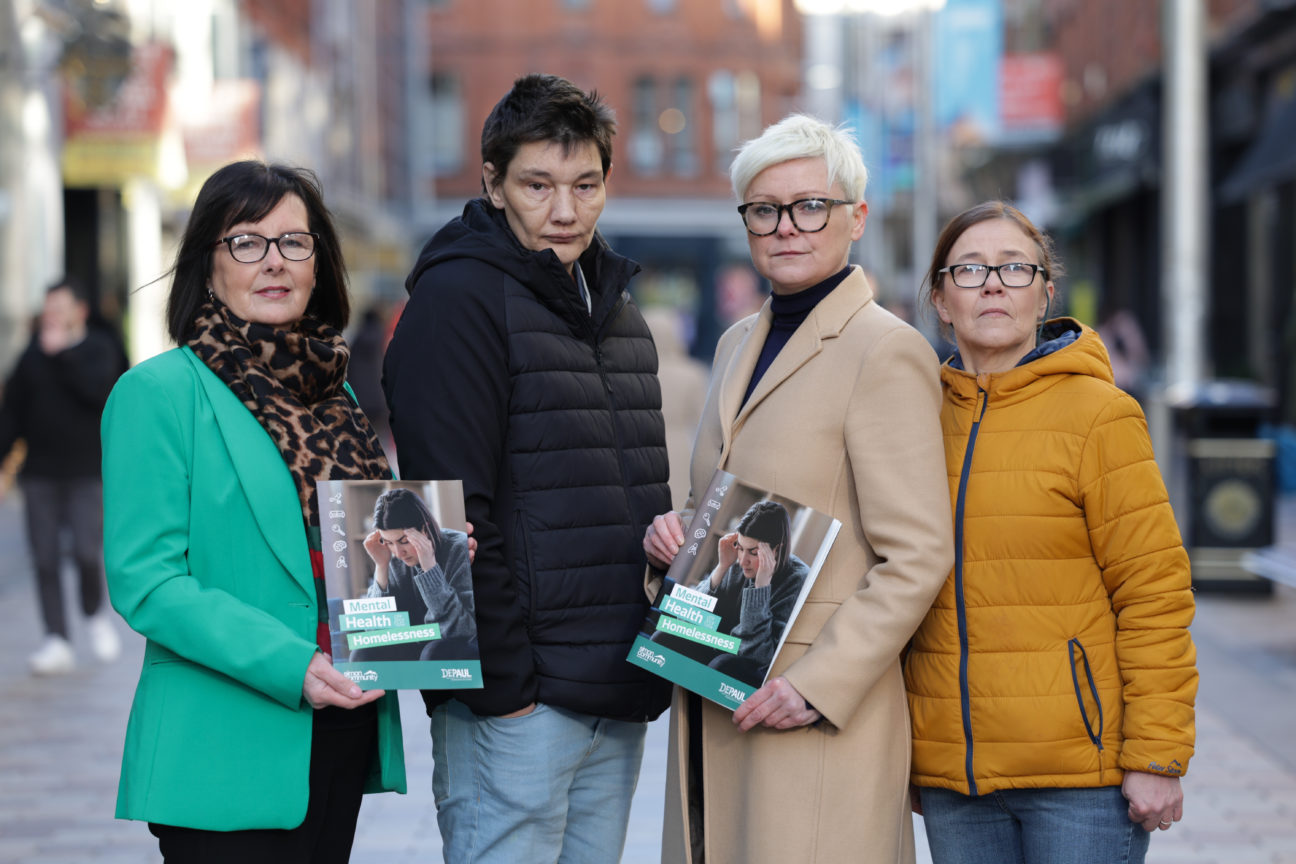
Simon Community NI and Depaul officially launched a new ‘Mental Health and Homelessness’ report at an event held recently at Belfast City Hall. The launch was attended by Northern Ireland Mental Health Champion Professor Siobhan O’Neill and Lord Mayor of Belfast City Council Christina Black, together with representatives from across the homelessness and mental health sectors as well as political representatives.
The joint research paper highlights the significant inter-relationship between mental health and homelessness. In a study conducted as part of the research with 170 people across Northern Ireland experiencing homelessness, almost 70% reported a diagnosed mental health condition. The overwhelming majority (84%) also stated they had received this diagnosis before becoming homeless.
The report identifies homelessness as more than a housing issue but the consequence of multiple disadvantages with mental health both playing a role and having an impact. It reveals a catastrophic situation that cannot be ignored and calls on politicians and decision-makers to stop thinking that homelessness is just a housing issue but identify it as a fundamental health issue that requires urgent action.
Simon Community NI Chief Executive Jim Dennison said. “Homelessness is both stigmatising and isolating and ca be a cause and a consequence of mental illness. We need to ensure we have the right measures in place to support people who are struggling. We need a legal basis that pushes statutory bodies with responsibility for housing, health and social care, justice and education to cooperate and find more effective solutions. We also need a focus on homelessness written into the Mental Health Strategy.”
Northern Ireland Mental Health Champion Professor Siobhan O’Neill said, “It is essential that people can access the right support at the right time. There needs to be a specific action plan for people experiencing homelessness within the Mental Health Strategy. Support within the Department of Health should also be streamlined to provide timely interventions for people experiencing homelessness with additional issues. Referral pathways also need to be improved to enable swift access, with person-centred and trauma-informed care at the heart of service delivery.”
Sharing her experience Patricia, who was homeless in Belfast for six years but is now in permanent accommodation, spoke about how her struggles with addiction, mental health and addiction were linked, “I grew up in the care system basically, and I had mental health issues from when I was really young. I had flashbacks throughout my 20s which led to addiction and that was me on the street. I do believe if I had had help I would’ve taken a different path in life. It’s just a cycle you know, going round in circles.”
Sean (41) was homeless on and off for 16 years following a relationship breakdown, staying in temporary accommodation, night shelters and on the street. Now living in permanent accommodation for three years he has struggled with anxiety and depression and is supported by the Simon Community NI, “If you don’t deal with your mental health your homeless life is going to become worse. It goes hand in hand. If you get the right help at the right time you mightn’t become homeless, you might be able to work on your problems and maybe resolve your issues. Sometimes you can’t even get a GP being homeless because you don’t have a fixed address, so it is really heard for people facing these issues to know where to go to. They don’t look at your mental health issue, they look at your addiction issues and they don’t look at your for mental health if you have an addiction.”
The report recommendations call for a specific action plan for those experiencing homelessness within the Mental Health Strategy, a statutory duty to co-operate on relevant departments and statutory bodies across housing, communities, justice, education, health and social services to prevent and end homelessness as well as investment in staff training to allow them to better support the complexity of needs an issues experienced by people within homelessness services.
The report can be accessed here.